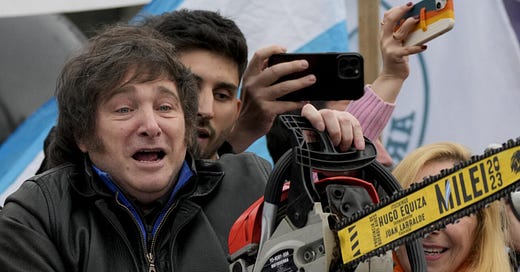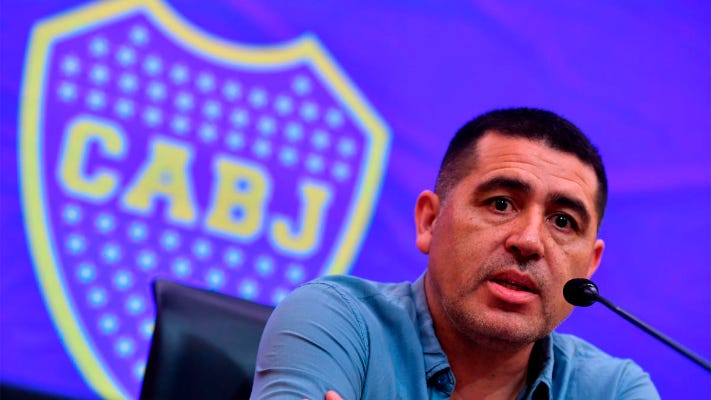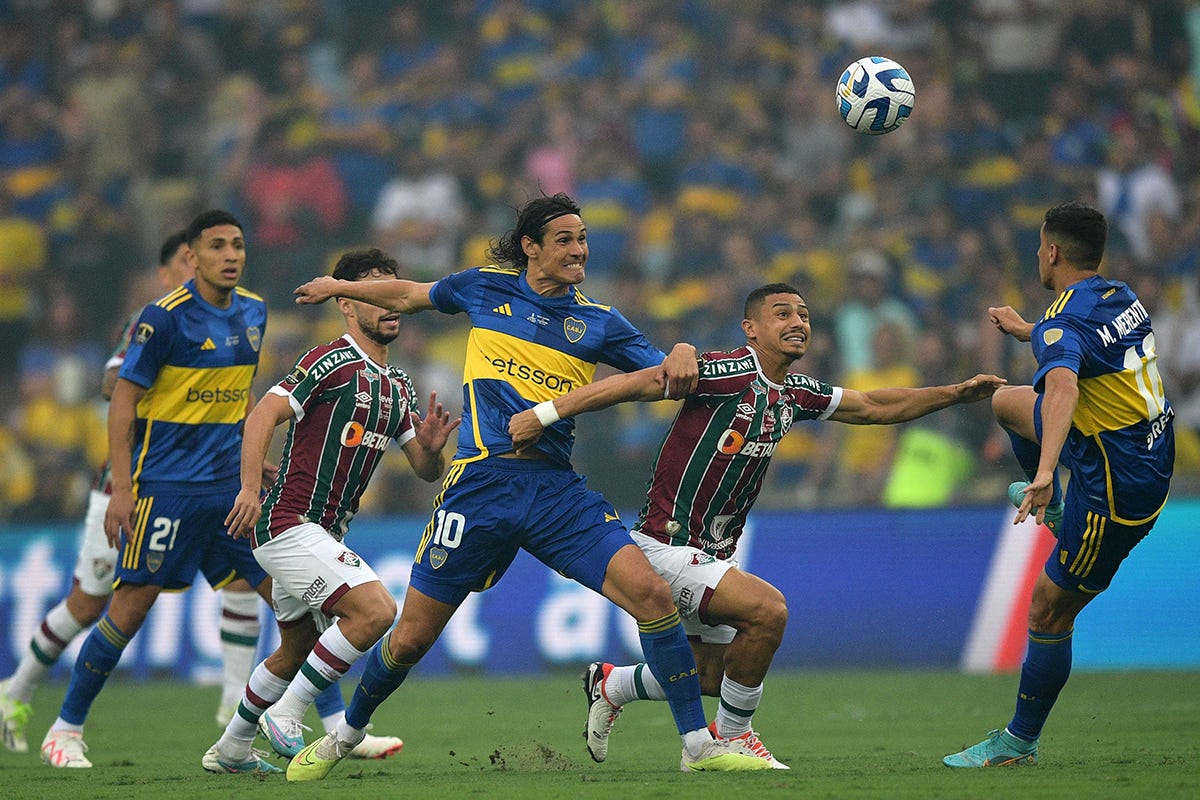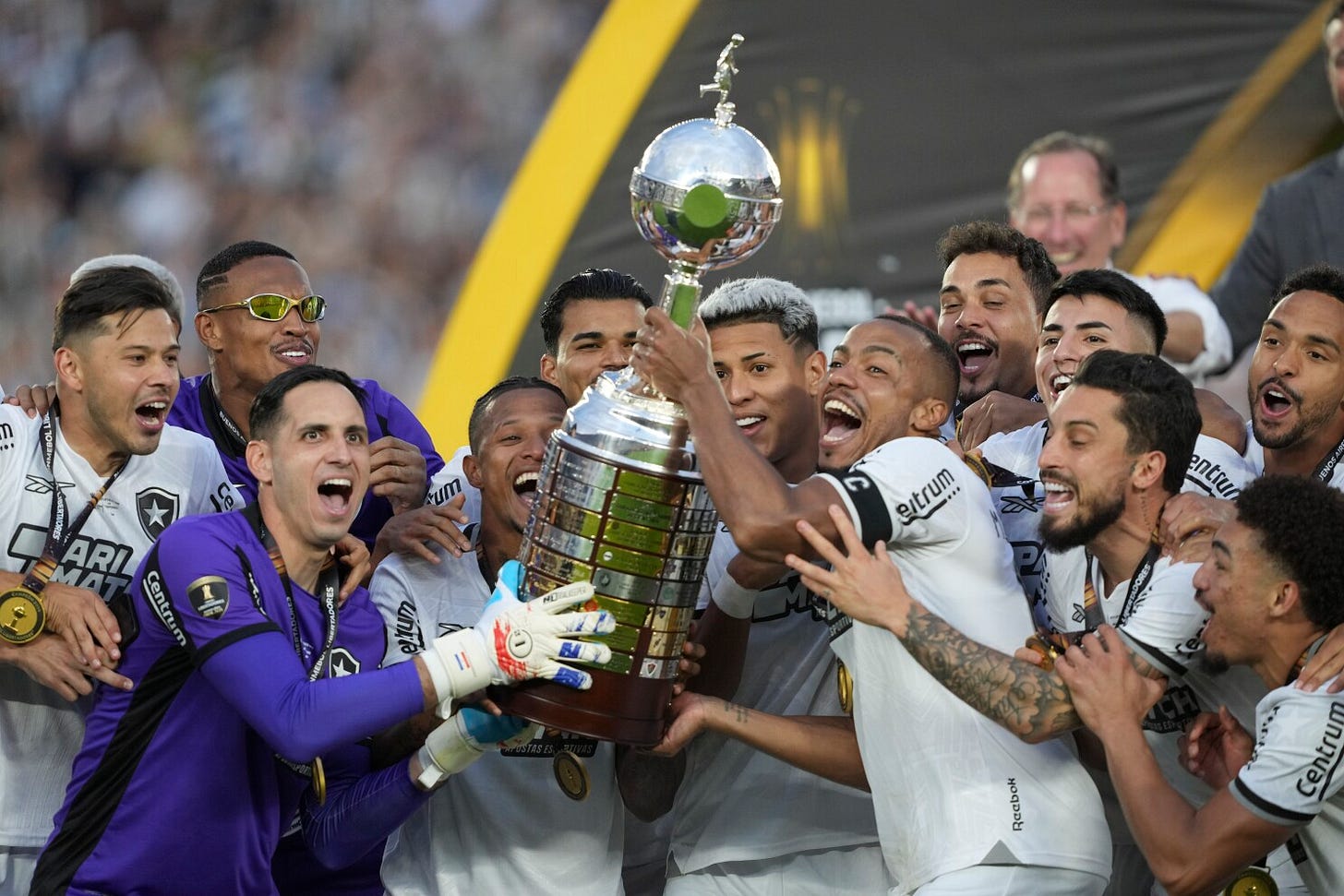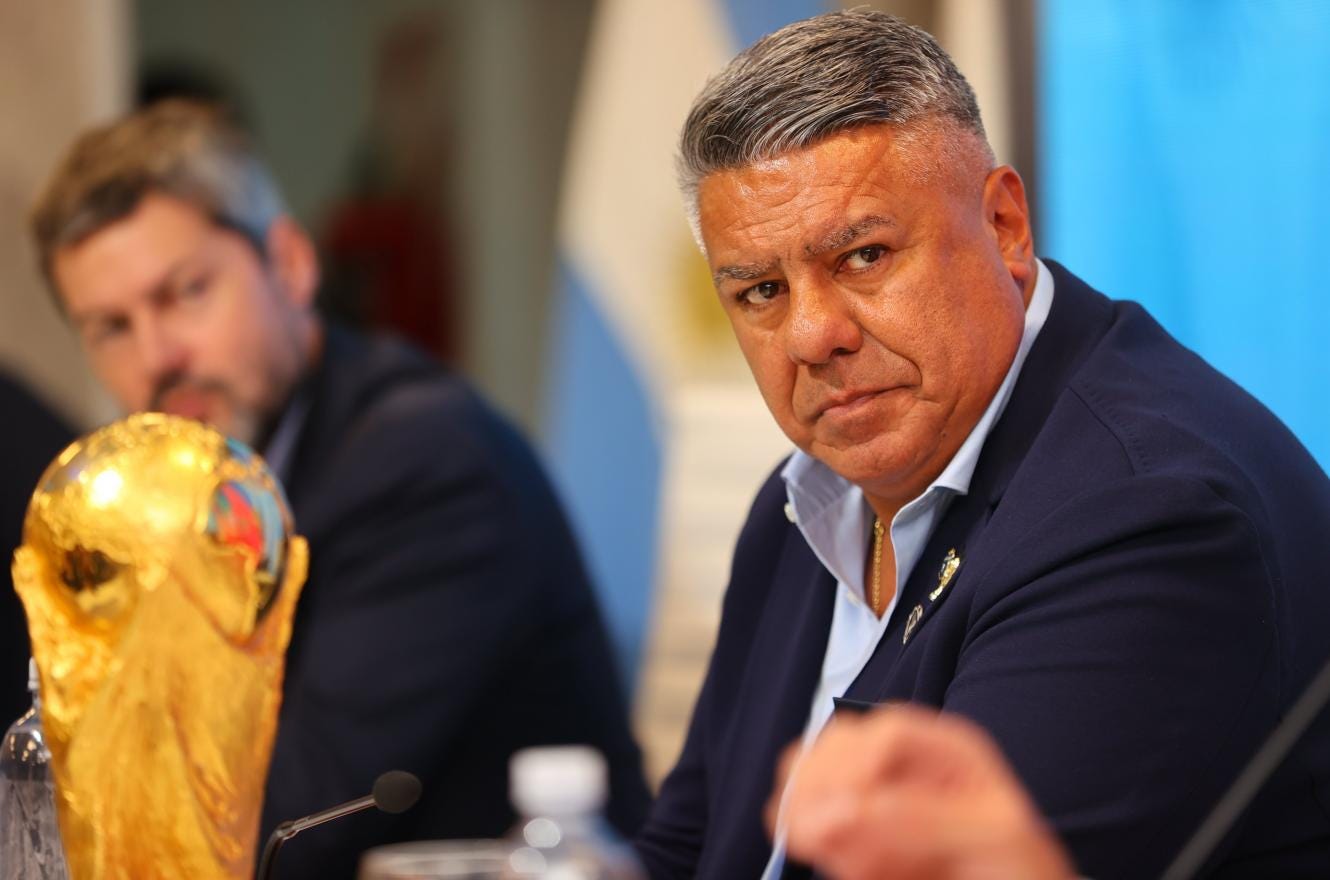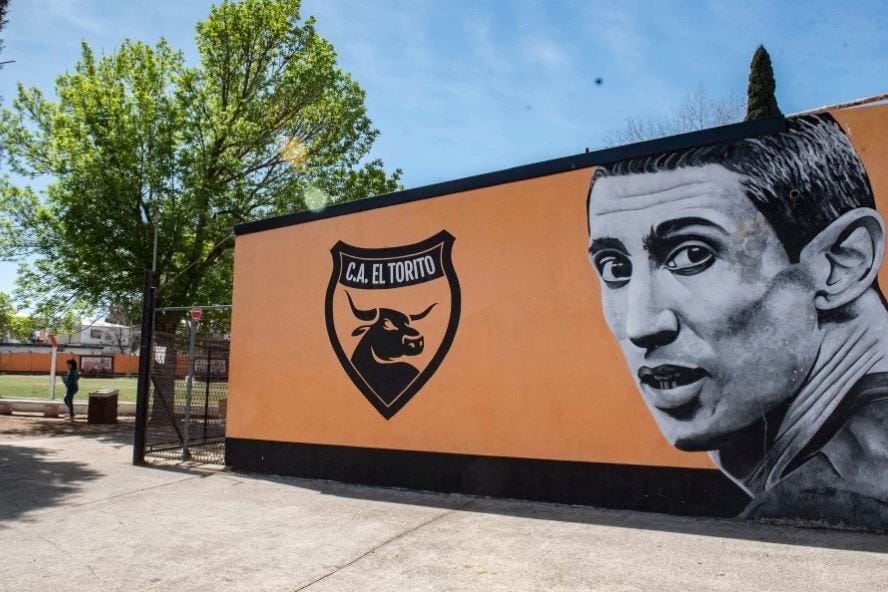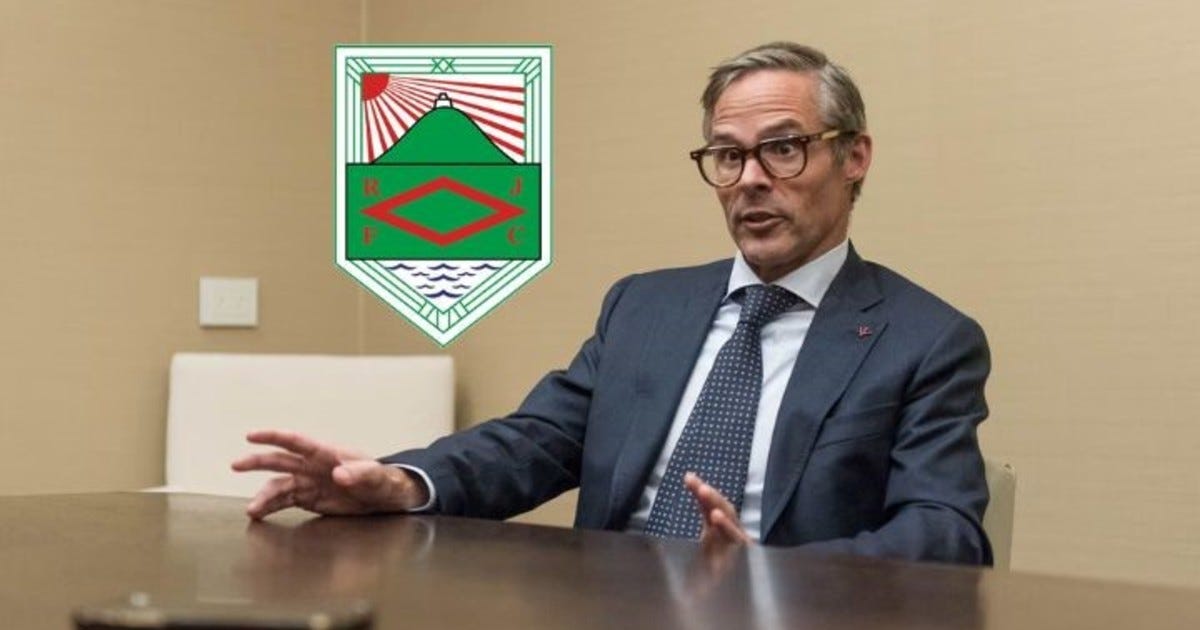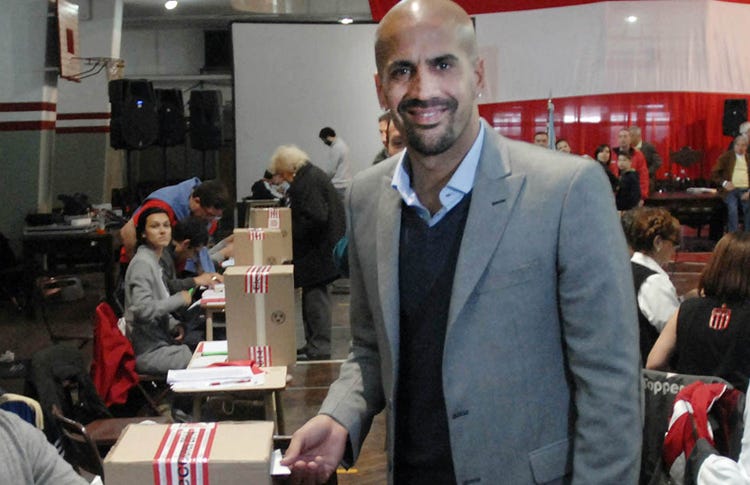A SAD state of affairs in Argentinian football 2024
The privatisation of Argentinian football clubs
La República Argentina is not only home to the current FIFA World Cup champions, but also to a footballing culture so rich in heritage, folklore and tradition that it draws the admiration of many globally. Buenos Aires, as the main hub of Argentinian football with over 40 clubs within an hour of the centre of the capital, remains a mecca for wide-eyed football fans. However, the election of Javier Milei as Argentina’s new president threw the soul of Argentinian fútbol into the path of the fiendish revolutions of the neoliberal’s trademark chainsaw with which he aggressively campaigned in 2023.
It wasn’t only Milei winning a presidential election as 2023 drew to a close. December of that year also saw Juan Román Riquelme win the presidential elections at Club Atlético Boca Juniors, fighting off former president of club (1995-2007) and country (2015-2019) Mauricio Macri as 35,000 socios (members) – including Javier Milei himself – walked on the pitch of their side’s hallow turf to vote in legendary midfielder for a four-year term. Macri – who had got into bed with the new president of the Republic – was looking to follow through on his plans from decades earlier: to introduce privatisation to Argentinian football.
And so it was that a week after being sworn in as Argentina’s president, Javier Milei passed a DNU – an emergency decree, a bill which bypasses Congress when urgency is vital – of 366 items aimed at “reconstructing Argentina’s economy”. What became known as the “mega decree” included two bills which aimed at legalising the conversion of Argentinian football clubs into Sociedades Anónimas Deportivas (SADs): limited liability companies.
For one-hundred-and-thirty-three years the Argentinian game has been played by clubs run by asociaciones civiles; often multi-club institutions owned and run by their members. The first game to be played on Argentinian tierra was in 1867 when the Brits at Buenos Aires Cricket Club formed two sides to play the country’s inaugural match of what was to become the people’s main diversion. Twenty-four years later, in 1891, the Association Argentine Football League was formed and the first league campaign – consisting of five teams playing eight games each – was contested. Since then, the beautiful game has taken on such a significance in Argentinian society that its presence is felt everywhere.
Two exceptions prove this 133-year rule: towards the end of the last millenia, Racing Club de Avellaneda (one of Argentina’s Los Cinco Grandes; “Big 5”) and Club Deportivo Mandiyú of the northern province of Corrientes both faced severe financial problems which threatened their existence, hence the bending of the rules to allow a temporary SAD model to tidy up the clubs. Neither projects were considered a success and the membership model was reinstalled in both clubs within a short space of time.
These institutions – the Club Atléticos, the Club Deportivos and the Asociación Atléticas – represent a hugely important part of each barrio; neighbourhood. Not only do their elite sides provide the same vital escapism that sports teams in Europe provide and at affordable prices (unlike many top European clubs), but also cultural, social and educational facilities, as well as a safe place for children and young people in a society dominated by poverty and its subsequent violence. These elements are what many in Argentina are looking to preserve in the face of potential SAD-ification. As football journalist Ezequiel Fernández Moores writes in Cenital: “[SAD is a fight against] an age of clubs representing much more than their position in the league table and who already have owners [their members].”
Many football federations across the South American continent have allowed – or even decreed, in the case of Chile – the conversion of their sporting institutions to entities funded by private capital. The latest introduction of SADs (or, in Portuguese, SAFs: Sociedade Anônima de Futebol) was in Brazil under another neoliberal, the then-president Jair Bolsonaro. Proponents of the introduction of SADs to Argentinian football will talk of the Brazilian domination of the Copa Libertadores – the South American Champions League: five of the last six finals have been all-Brazilian affairs, with a somewhat lucky Boca Juniors – relying on draws, the subsequent penalty shootout and goalkeeper Sergio Chiquito Romero – the only outsider in 2023, losing to Fluminense in Estadio Maracanã in Rio de Janeiro. Brazilian clubs are vastly richer than clubs in neighbouring countries; but Brazil is also a much larger nation than the others with over 220 million inhabitants versus Argentina’s 46m. What proponents of the Brazilian SAD model ignore is that 11 of the last 15 winners of the Libertadores have been Brazilian, going back to 2010, ten years before the introduction of private capital into o futebol brasileiro under Bolsonaro.
The 2024 winners of the Copa Libertadores were Rio de Janeiro side Botafogo, who won the Gloria Eterna for the first time in their 120-year history, as well as the Brasileirão (Brazil’s Série A). In 2022, a majority 90% stake in Botafogo – newly promoted from Brazil’s Série B after one season in the second tier – was bought by American businessman John Textor under his multiclub company Eagle Football Holdings Ltd. (Eagle Football now own or part own Crystal Palace, Olympique Lyonnais, Belgian side RWD Molenbeek and American outfit FC Florida.) Whilst Botafogo have had a good two years under Textor’s custodianship, their French cousins Lyon have not fared so well, being threatened with expulsion from Ligue 1 if they do not get their finances in order.
And, whilst the Botafogo case has been highlighted by those championing the SAD model, Club Atlético River Plate – an asocasión civil – did something arguably more impressive (time will tell) after their own relegation in 2011. River bounced back to the Primera División at the first time of asking and went on to win the Copa Sudamericana in 2014 and the Copa Libertadores twice in 2015 and 2018 (as well as a league title and three Copa Argentinas, along with a number of other smaller – but not less significant in Argentinian football culture – competitions).
Despite some apparent success stories on the pitch, the general consensus in Argentina rejects the SAD model with the major clubs all releasing statements in November 2023 confirming their commitment to their institutional statutes which demand the running of the club as a non-profit, membership-run association. That should have been the end of the discussion, but so kicked off the political-football match of 2024.
The encounter began with a long-distance effort by Javier Milei – the former goalkeeper, who was on the books at Chacarita Juniors as a teenager – when he passed a law making it possible for football clubs to become SADs. The law included the impetus of all bodies to, within the space of a year, adapt their statutes accordingly: including AFA, the Asociación del Fútbol Argentino. The wording suggesting that sporting bodies “cannot discriminate against private corporations” was clear: it would be illegal to deny the participation of private entities in professional sporting competitions.
AFA’s own president, Claudio Chiqui Tapia – emboldened by his overseeing of two successive Copa América triumphs (2021 and 2024) and Argentina’s third World Cup win (in 2022) and his consequent pallying up to and gladhanding of Lionel Messi and his newly-crowned world champions – parried the Milei’s first attempt on goal. Tapia, who had been a forward for Barracas Central, the club he subsequently became president of in his charge of ascendency in the political sphere (and the club who play at the Estadio Claudio “Chiqui” Tapia), stood behind a defensive line represented by a favourable court which recognised AFA’s autonomy and competence in deciding how Argentinian football should be run; i.e., the continuation of las asociaciones civiles, exclusively.
A surprise was introduced to the game by way of an unknown trialist, seemingly not even on the team sheet ahead of the encounter: an individual who might have the last say. One Foster Gillett – son of, Liverpool fans look away now, George Gillett Junior, and once on the board at his dad’s Liverpool FC – paid a visit to Argentina in August. Gillett had shown interest in buying Lyon and Hearts of Midlothian, amongst others, and was in town to visit Juan Sebastián Verón, president of Estudiantes de La Plata.
Following his tour of the city of La Plata, F. Gillett returned to Buenos Aires to visit Milei – nicknamed, amongst other things, El Loco and El Peluca; “the Crazy One” and “the Wig – at the presidential palace Casa Rosada, Gillett handed the president an Estudiantes shirt with Milei 9 on the back. Eyes were raised but the trailist’s impact was yet to be felt as the first half of the bitter contest fizzled out.
Into the second half and Tapia went on the attack by calling an early election for president of the football federation. Chiqui has been AFA’s president since 2017 after a period in which FIFA had put in place a so-called “Normalising Committee”. The 2014 death of Julio H. Grondona – president of AFA since 1979 and FIFA Vice President since 1988 – left a power vacuum and two candidates battled fiercely for the throne. In a vote of 75 members, both candidates received 38 votes. Do the maths. Once FIFA felt the instability had passed and the AFA was “normal” again, Tapia was voted in. Seven years later and the incumbent president, running unopposed, called an early AFA election. Talking to the 46 club representatives, Tapia eulogised their contributions to the game by saying: “The World Cup winners were trained by you, our clubs,” highlighting that the institutions – run by its members – had been responsible for the development of some of the world’s best talent. “When we say we don’t want a different model, this is one of the reasons.”
A fear in Argentina is what might happen to the much smaller clubs, those who have no presence in the professional pyramid of Argentinian football, but who serve a vital role in their communities and who provide so-called Baby Fútbol (pronounced “babby”) for children between the ages of 4 and 13. Lionel Messi (Grandoli), Ángel Di María (Parque Torito) and Alexis Mac Allister (Club Social Parque) all took their first steps in such clubs, not dreaming of the millions of Argentinian pesos they might earn, but for the genuine love of the game.
The stubborn low-block of Tapia’s defence of Argentinian football’s status quo led to frustrations among the government who threatened to usurp the running of the game. A Judicial Inspection Board (the Spanish acronym IGJ for Inspección General de Justicia) called the vote – five months ahead of schedule – illegal and suggested that the government would be forced to intervene should Tapia and his acolytes’ heresy continue. Tapia’s clean sheet was under threat.
However, government interference in the running of any nation’s football is not looked upon favourably by FIFA. Argentina’s neighbours Brazil were threatened with expulsion from the 2026 World Cup after the removal of the Confederação Brasileira de Futebol (CBF – Brazilian FA) president Ednaldo Rodrigues; Rodrigues was quickly reinstated. Mali were also banned from global football after their government’s Sports Minister dissolved Mail’s football federation FEMAFOOT’s Executive Committee.
El Loco Milei, however mad he might be, is surely not crazy enough to get the current two-time Copa América and World Cup-holders suspended from international football?
Yet another president entered the fray in what quickly became “the Presidents’ Cup”: the ever-gatecrashing FIFA’s head honcho Gianni Vicenzo Infantino. A letter dated 23rd October 2024 arrived in the buzón of AFA Headquarters in Viamonte 1366 in Downtown Buenos Aires congratulating Tapia on his reelection and for his “efforts, work and contribution to the development of our sport and the promotion of its values in Argentina, South America and the rest of the world.” The letter, also posted online, made it clear where Infantino, and subsequently FIFA, stand on Chiqui Tapia, someone Gianni considers a strategic partner not only for his relationship with Lionel Messi, but also for his willingness to go along with the 2030 World Cup’s hosting of one game in Argentina (as well as Uruguay and Paraguay), something which opened the door for an unopposed, and ultimately successful, Saudi Arabian bid for the 2034 World Cup.
The first leg of this SAD affair was coming to a close when the aforementioned trialist brought the ball forward. As the year was coming to an end Foster Gillett successfully bought Uruguayan side Rampla Juniors. The now former asocasción civil converted to a SAD after 131 members – of the 157 present – voted for the takeover.
The privatisation of Uruguay’s football clubs was made possible in 2001 but it wasn’t until second tier Deportivo Maldonado converted in 2009 that Uruguayan football had its first Sociedad Anónima Deportiva. Maldonado’s new English owners exploited the 4% tax rate on player transfers to pass players through Montevideo and onto bigger, and vitally richer, leagues. Argentines Jonathan Calleri (to West Ham) and Gerónmio Rulli (to Manchester City), Brazilian Alex Sandro (to Porto) and Paraguayan Marcelo Estigarribia (to Juventus) all passed through Maldonado without playing a single game for the team, whose average attendance at the time was under 300 montevideanos and montevideanas. Fifteen years later, Maldonado came rock bottom of the 2024 Uruguayan Primera División. Joining them in the second tier were Gillett’s Rampla Juniors. (Coming up in their stead were three SADs, including Montevideo City Torque, part of Abu Dhabi’s City Football Group).
Back to Argentina and a last-minute bombshell. As Tapia, Riquelme, Infantino and most members of most clubs were happy to see out a hard-fought away draw, Gillett struck. His newly-relegated yet newly-acquired Rampla Juniors paid the US$15m release clause of Boca Juniors’ Cristian Medina: a move that would be similar to Inverness Caledonian Thistle paying Marcus Rashford’s release clause at Manchester United. Medina is the latest in a long line of Boca Juniors academy products to essentially go on strike having asked for a lucrative move abroad and threatening to see out their contracts to leave on a free. His situation was untenable but clearly Medina will not be playing in Uruguay’s second tier in 2025. The talented 22-year old midfielder will be loaned out to Estudiantes de La Plata, the club with which Gillett has signed a pre-agreement for investment, should those doors be opened in 2025.
Estudiantes de La Plata president Juan Sebastián Verón had the last say on the matter, in 2024 at least. The former midfielder – who returned to Estudiantes after a decade in Europe to lift the Copa Libertadores in 2009, just like his father Juan Ramón had done thrice between 1968 and 1970 – defended the SAD model by saying: “What we are looking to do is to generate noise. I’m not thinking about the people (the members) but their business. We are opening up a path for each club to be able to run their clubs in a different way. This will be the model for everybody in Argentinian football, and we will be the first.”
The second leg of the final, due to take place over the coming 12 months of 2025, will be quite the spectacle.

